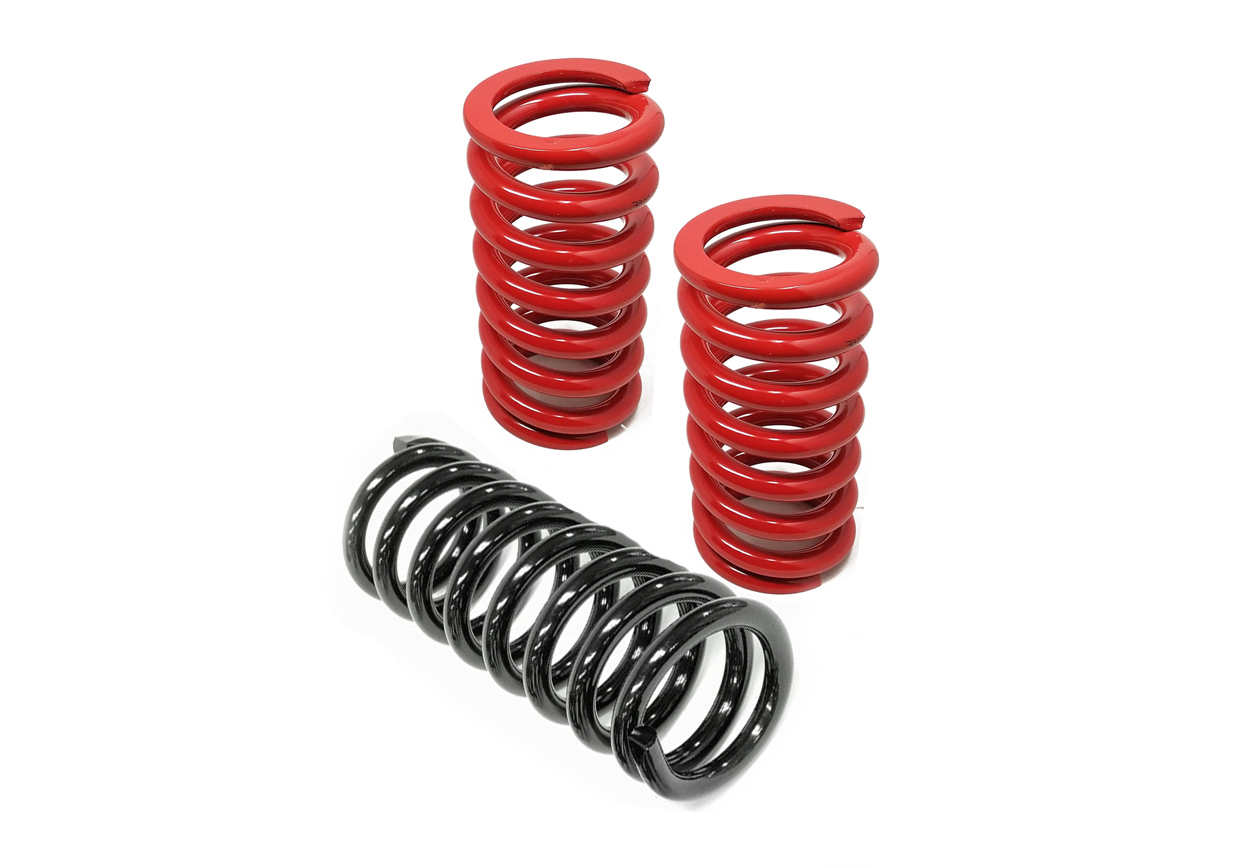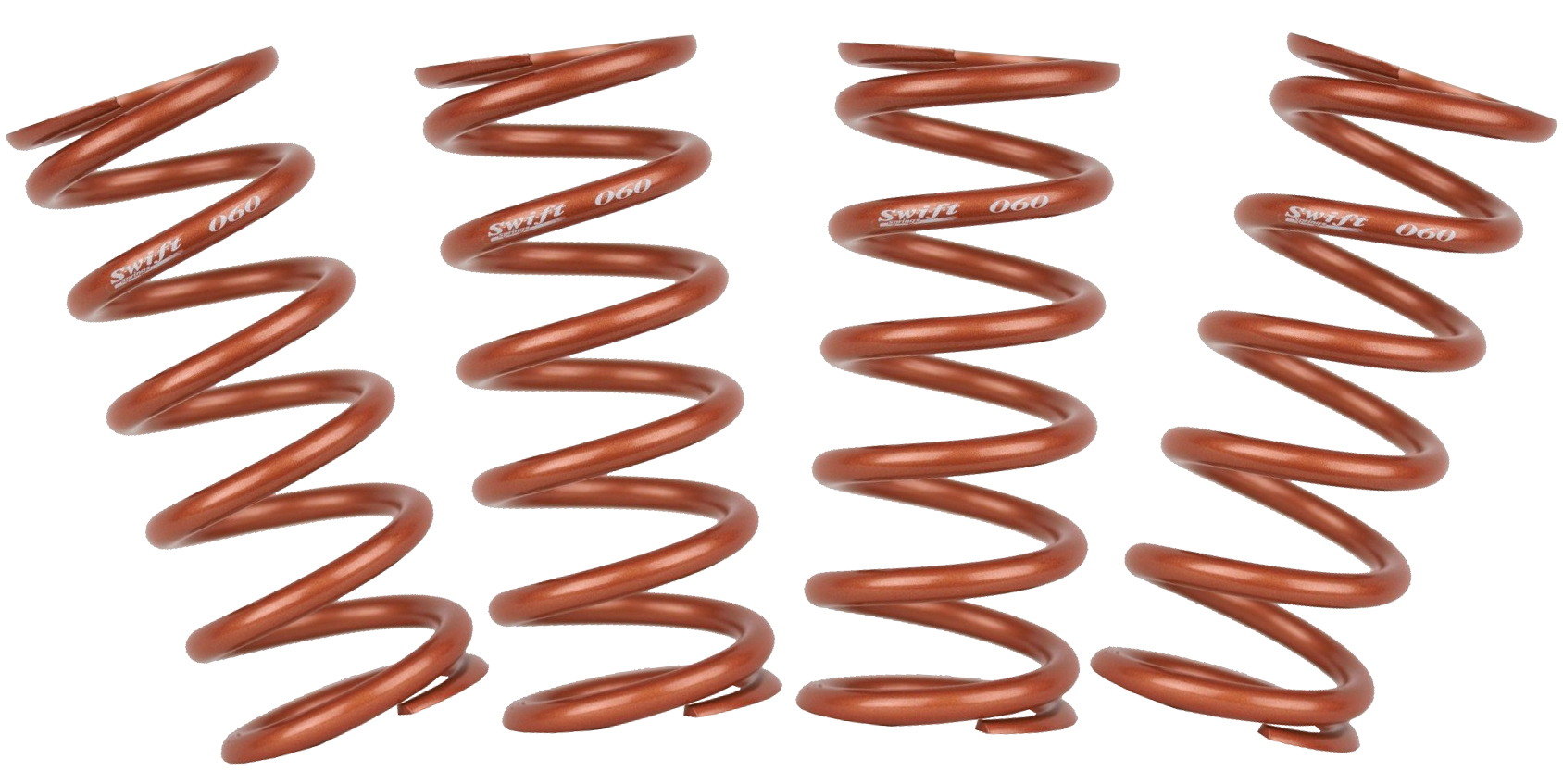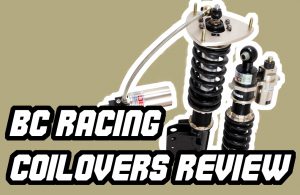What Are Swift Springs And Why Do So Many Coilovers Offer Them As An Option?
These days, it’s hard to find a set of coilovers that doesn’t offer Swift Springs as an upgrade option. If you’ve been looking at coilovers to buy, no doubt you’ve seen the Swift Spring Upgrade checkbox. But what exactly are Swift Springs and why are so many coilover manufacturers offering them as an upgrade option?
First, a Few Important Points About Springs
Many people think spring rates are the most important thing that determines how a spring will perform, and that otherwise all springs are equal. However, that’s simply not the case.
How the spring is made plays a massive factor in how it performs, affecting its weight, responsiveness, resistance to sag, how it maintains the spring rate throughout the stroke and so on.
No matter what the springs are for – track, off-road or daily driver, there are common factors that are always important:
- Ride comfort
- Handling performance of the vehicle
- Good, consistent feedback for the driver
This is where Swift Springs outshines the competition. Due to their manufacturing process and the special materials they use, they are able to make a spring that beats all the others on all of these points and more.
Let’s take a look at Swift Springs, both the company and the springs themselves, in detail.
About Swift Springs the Company
Swift Springs is a Japanese company and is owned by Tohatsu, a company that has been manufacturing industrial springs since 1924.
In 1997, Tohatsu decided to get involved in the racing market, and Swift Springs was born. Using their extended experience in making coil springs, they decided to make a spring that would revolutionize coil springs and overtake all the ones available on the market.
They did achieve this goal, and their springs have been used in some of the top tiers of motorsport including Formula Three, 24hrs of Le Mans, Super GT, 24hr Nurburgring, Super Taikyu series, D-1 World Grand Prix and more. Their springs are common in almost all forms of motorsport from dirt and offroad to circuit, motorcycles, autocross and more.
So What Makes Swift Springs Special?
In order to achieve the above goal, Swift Springs came up with not only a special coil winding method, also produced a proprietary new steel alloy they called “HS5.TW”, which was specifically created in order to achieve the following four factors:
- Have the most consistent spring rate throughout the stroke
- Have the largest stroke
- Be the most durable spring against sag
- Be the lightest weight
They also achieved a fifth factor – the fastest reaction time of a spring – which not only gives consistent feedback but helps to maintain more grip, resulting in better handling and faster lap times.
Due to the way their springs are made, they require less coils to achieve the same spring rate compared to other springs. They are also made of thinner wire, which means the springs have more stroke and travel compared to one with thicker wire, and they won’t bottom out as easily.
Both of these points also mean that the springs are lighter, which means the spring can react faster and smoother while having less unsprung weight on the car.
Swift Springs are also extremely resistant to sagging, which is where the spring starts to lose its height and sits lower than it previously did. Swift Springs have proven to be the most resistant spring on the market to sag, being measured to be within 1% of the spring rate they were when they were new – even after a year of racing.
On top of all that, Swift Springs also tend to have less harmonic vibration
The end result of all this being that racers and road users report that the ride is noticeably more comfortable at the same or even higher spring rates, and that the car behaves better and lap times decrease just by changing to Swift Springs.
Swift Springs are offered in a huge range of spring rates from 4kg/mm up to 50kg/mm depending on the length of the spring.
Are Swift Springs Really That Good?
I went online to find reports for Swift Springs to see if they really are that good.
Now, as well all know, the internet is full of people who will bash anything and everything without actually having experience with the product.
What was interesting about the Swift Spring was that of all the forums posts I read and all the reviews I found, it was overwhelmingly positive. Everyone who decided to upgrade their coilovers with Swift Springs was very happy with them.
I even found several spring dyno tests of Swift Springs vs other springs which test how consistent the spring rates are as the springs compress. The Swift Springs had incredibly consistent results, being within a couple of lbs per inch, all the way down to full compression. No other springs came even close to that. They also didn’t lose any of their height during the tests, unlike some of the other springs.
Are Swift Springs Worth the Extra Money?
From everything I’ve seen, yes. A set of Swift Springs will generally cost you an extra $300 on top of the cost of the coilover kit. For this $300 you are going to get noticeably improved ride comfort and handling performance. Considering how much money people spend on upgrades for their car, the cost of Swift Springs is not big for the noticeable increase you get.
If you are tracking the car, especially competitively, then they are worth the money even more. Many people go for horsepower as the way to make the car faster, but did you know that a 10% increase in grip will give you the same lap time improvement as 100% extra horsepower?
Swift Springs will contribute directly to that due to the way they perform, giving you more grip than any other spring. So you could get a competitive advantage just by using the Swift Springs (which is exactly what many race teams do) even if you are restricted by class rules.
Conclusion: Should You Buy Swift Springs?
Yes. Whether you’re getting coilovers for a daily driver or for a track car, you’re going to see a noticeable improvement.
Now, if you really can’t stretch your budget – will the coilovers be fine without them? Sure, if you get a decent set of coilovers from a good brand, they will still perform fine with normal springs. However, by all accounts, you will not be wasting your money going for the Swift Spring upgrade.
Where Do You Get Swift Springs?
If the brand of coilover you are looking at offers Swift Springs as an upgrade, you will often see an option when you are adding them to your car to select the Swift Spring option.
To round this off, here are answers to some of the most common questions regarding Swift Springs.
Are Swift Springs Good?
Yes, Swift Spring are very good. In fact, Swift Springs manufacture the best springs currently available on the market, offering both better ride comfort and handling performance than any other brand of spring.
Are Swift Springs Progressive or Linear?
Swift Springs for coilovers are linear. However, they do offer lowering springs which are progressive.
Do Swift Springs Sag?
No, Swift Springs do not sag. They have proven to be the most resistant spring on the market against sagging, even when used in racing for extended periods of time.
Are Dual-Rate Springs Better?
Not necessarily. Dual rate springs’ only advantage is that they can provide one spring rate (usually softer) for the first part of spring compression and then a second spring rate (stiffer) for the rest of the compression. The only benefit of this is ride comfort, but it sacrifices performance. So for a daily driver, dual-rate springs are a good option. For a track car or a more performance orientated setup, linear springs are better.
What Spring Rate Are Swift Springs?
Swift Springs come in a variety of spring rates from 4kg/mm all the way up to 50kg/mm.
How Long Are Swift Springs?
Swift Springs come in a range of lengths from 4” to 8” long.
What Is the Point of Swift springs?
Swift Springs provide both ride comfort improvement and handling performance benefits compared to all other coilover springs.
- BC Racing Coilovers Review – Are They Any Good? - September 12, 2024
- 8+ Best Nissan 350Z Coilover Guide In 2024 - September 12, 2024
- Top 6 Best 2015 Subaru WRX Coilovers - September 12, 2024





